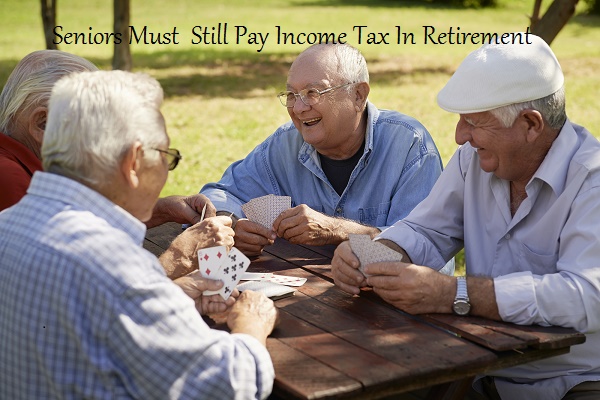Do you still have to pay income tax after your retire? The short answer is: YES!
I’m not sure why, but there seems to be a myth floating around about seniors not paying taxes. I’ve always had to deal with seniors in trouble for not filing tax returns when they needed to, or not paying tax on their IRAs, but lately I’ve been hearing the age myth. Three times in the past three weeks I’ve heard real people say the following things:
“Now that I’m 65 I don’t have to pay self employment taxes on my 1099 income.”
“What do you mean I need to be concerned about required minimum distributions, I won’t have to pay tax after I’m 70 anyway?
“I won’t need you to do my taxes anymore now that I’ve turned 80. There’s no taxes after 80.”
The bad news is: those statements are all false! The IRS doesn’t really care how old you are. They still want your money. So how do some of these myths get started in the first place? Well, some states don’t tax your retirement income. So if you live in one of those states, it’s easy to assume that the IRS doesn’t tax it either, but the IRS does tax retirement income, and they don’t care how old you are.
Myth 1, not paying Social Security tax after age 65: Once you start receiving Social Security benefits, it’s easy to assume that you won’t be paying into Social Security anymore. But–you do. Actually, if you’re still working after your full retirement age you might even increase your Social Security benefits. It all depends upon your circumstances, but you’ll want to check with Social Security to make sure that you’re being credited for your Social Security contributions.
Myth 2, no taxes after age 70: After age 70 1/2 you are required to start taking money out of your IRAs. It’s called Required Minimum Distributions (RMDs)- and that money is taxed. The quick and dirty calculation to figure your first year RMD is to take the total dollar amount of the money you have in all of your IRAs and divide by 28. Now, this is a quick and dirty calculation. Different ages, and different situations can get you different results. If you want to compute an RMD for a different age, try the Kiplinger calculator: http://www.kiplinger.com/tool/retirement/T032-S000-minimum-ira-distribution-calculator-what-is-my-min/index.php
For many people over 70, you don’t stop paying taxes, you actually pay more in taxes. If you don’t know about the RMDs and you need to be taking them, there can also be some pretty hefty penalties.
Myth 3, not paying taxes after age 80: I don’t know where that came from. (Actually, I heard it from my mother-in-law who heard it at the senior center. But I don’t know where it started.) Many seniors don’t pay tax because their income is low enough not to pay, and they aren’t required to file. But they’re not paying tax because of their low income, not because of their age.
And even if you’re not required to file, I still recommend submitting a return anyway to prevent identity theft.


